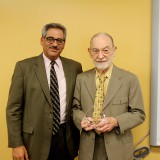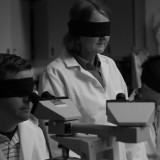In the news: Dr. Ioannis Pavlidis | How drivers behave when they are absent minded, emotionally charged or engaged in texting
 Ever wonder how and why your behavior changes when you drive while angry, stressed, or texting? Dr. Ioannis Pavlidis, as well as researchers from Texas A&M’s Transportation Institute, are studying how distraction affects a part of the brain called the anterior cingulate cortex (ACC), which automatically corrects small errors. When distracted by texting or other internal and external stressors, this error correction is funneled to the arms, which causes lane deviations and auto accidents.
Ever wonder how and why your behavior changes when you drive while angry, stressed, or texting? Dr. Ioannis Pavlidis, as well as researchers from Texas A&M’s Transportation Institute, are studying how distraction affects a part of the brain called the anterior cingulate cortex (ACC), which automatically corrects small errors. When distracted by texting or other internal and external stressors, this error correction is funneled to the arms, which causes lane deviations and auto accidents.
The data gleaned from this research will be key in designing a “stressalyzer,” which could serve as not only a black box for accidents, but also as a driver alert and prevention mechanism. Dr. Pavlidis is a professor of computer science and a member of TIMES’ faculty.
Read more about Dr. Pavlidis’ research here.














